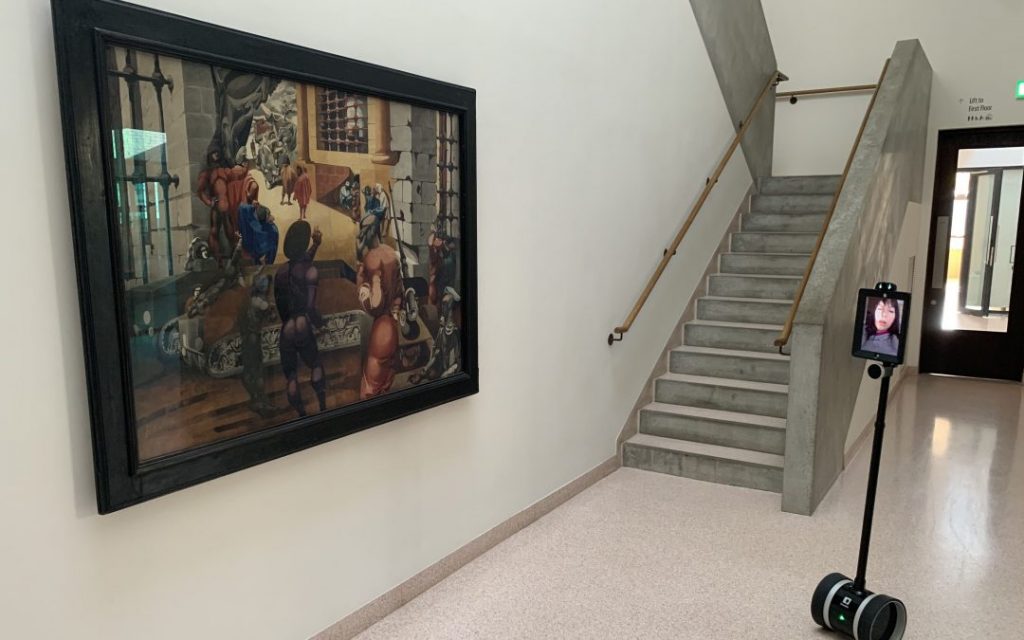People in self isolation due to coronavirus can use robots to remotely access one of Britain’s most iconic art galleries, thanks to a unique Bristol Robotics Laboratory collaboration.
In short:
- In a UK first, the temporarily closed Hastings Contemporary has teamed up with the laboratory to offer its members and audiences the opportunity to visit the gallery and experience modern and contemporary arts using telepresence robot technology.
- Using the Double, a two-wheeled videoconferencing robot, an operator and up to five people can enjoy real time tours of the gallery and its exhibitions.
- The gallery is initially planning to offer robot-assisted guided tours of its current programme to visitors stuck at home, led by its curators and gallery team, as well applying the technology further to allow local artist-educators to facilitate interactive art lessons by piloting local children via the robot around the gallery.
- The gallery’s experience using the telepresence robot will also help to deepen scientific knowledge and understanding of the technical, social and organisational issues regarding use of such technology and inform future research and development.
Praminda Caleb-Solly, Professor of Assistive Robotics and Intelligent Health Technologies at the Bristol Robotics Lab, said: “I am absolutely thrilled to team up with Hastings Contemporary as part of our Arts and Humanities Research Council D4D project to provide people who are socially isolated the opportunity to enjoy art via the telepresence robot. This is an excellent example of how robotics technology can be used to support people in difficult situations such as we are currently experiencing. There are other applications for use of telepresence robots within health and social care and I look forward to learning from our experiences at Hastings to apply elsewhere.”
Esther Fox, Hastings Contemporary Trustee and Researcher on the D4D project, said: “This has been made possible by a partnership with a pioneering research programme D4D, which explores experiences of disability, social belonging and community engagement. Up until now we have been working with disabled people to explore how the telepresence robot might open up access to spaces they could not experience. Now many other people are in a similar position to disabled people, in that they cannot access spaces they could previously. We are excited to see how we can enable access to great art to combat isolation, particularly for those with underlying health conditions who are having to self isolate.”
Liz Gilmore, Director of Hastings Contemporary said “As we navigate through these testing times and manage the loss of important revenue streams, I’m thrilled to embrace such innovation and creativity. Our trials with the telepresence robot have buoyed the team here in Hastings and will enable a new and pioneering means of continued engagement with our visitors.”




